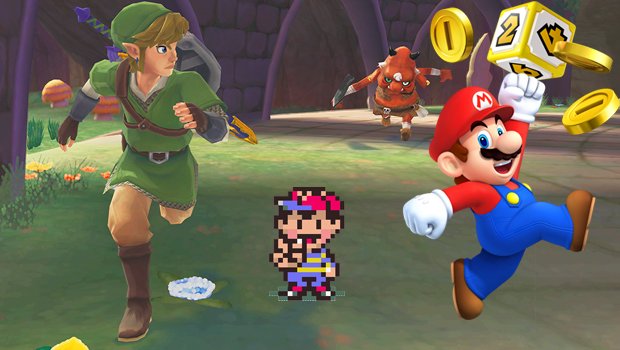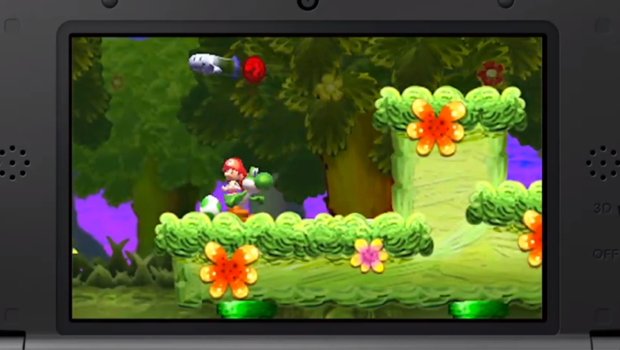The Legend of Nintendo: A Link to the Past
Why Nintendo's continued reliance on its core franchises is fine by us
In case you haven't heard, the highlights from today's Nintendo Direct include: a 3DS sequel to 1992's The Legend of Zelda: A Link to the Past; a 3DS sequel to 1995's Super Mario World 2: Yoshi's Island; and a port of 1995's EarthBound (finally!) to the Wii U's virtual console. All familiar franchises, you'll notice. And yet, rather than the chorus of "where's the innovation?!?" that typically follows the announcement of a barrage of rehashes, instead what I'm seeing most is "shut up and take my money." Weird, right?
Why is it that the announcement of another new Zelda or Mario game is rarely met with, "ugh, this again?" The answer, I think, is because Nintendo has found itself in the enviable position of securing its future by capitalizing on the past.

It makes sense that Nintendo relies so heavily on its decades-old franchises. Looking for a platformer? Mario. Action adventure? Zelda. A brawler? Super Smash Bros. Racer? Mario Kart. Each series is equated to a specific genre--there's no need for Nintendo to create a new world populated by new characters if it's going to confuse the role of one of its well-known brands. You don't need to learn anything new; you'll just use the same tools in new ways. Learning curves are nearly nonexistent, but there's plenty of depth.
Each entry in those franchises offers a new experience that builds upon pre-established systems, all while remaining grounded in Nintendo's playful style and simplicity. It treats its games as games: They don't offer cinematic hand-holding experiences, but a series of obstacles that players must overcome. They're also built upon systems and rules that are easy to understand. Nintendo's genius lies in taking a basic concept--like, say, jumping--and finding interesting ways to turn it into a problem-solving mechanic, one that can be tweaked to remain fresh and challenging over time.

Note that an increase in challenge doesn't necessarily mean an increase in complexity. Platforming in today's games is the same as the platforming in games from 1985 (except now we can do it in 3D). It's interesting to me that Nintendo doesn't use new hardware to compete with Sony and Microsoft on the graphics front so much as it uses new hardware to develop unique ways to tweak the mechanics and tools it popularized more than 20 years ago. It's fresh experiences wrapped in familiar skins that keeps us coming back for more.
Every console generation will see a new Link take up the Master Sword to face the evil Ganon--but this time he can flatten out Paper Mario-style to travel along a wall in 2D. It doesn't matter that the same hero will face the same villain because the struggle between good and evil is presented in a manner that is familiar and easy to digest. Nintendo's focus on simplicity not only appeals to a wide audience, but also tends to make its games feel timeless.
That's one of the major reasons Nintendo has such a loyal fanbase. It's why its franchises are household names. And I'd wager that's also why the recent announcement of yet another Zelda and Mario game was met with cries of "shut up and take my money" rather than contempt.
Sign up to the GamesRadar+ Newsletter
Weekly digests, tales from the communities you love, and more
You know that kid at parties who talks too much? Drink in hand, way too enthusiastic, ponderously well-educated in topics no one in their right mind should know about? Loud? Well, that kid’s occasionally us. GR Editorials is a semi-regular feature where we share our informed insights on the news at hand. Sharp, funny, and finger-on-the-pulse, it’s the information you need to know even when you don’t know you need it.
Ryan was once the Executive Editor of GamesRadar, before moving into the world of games development. He worked as a Brand Manager at EA, and then at Bethesda Softworks, before moving to 2K. He briefly went back to EA and is now the Director of Global Marketing Strategy at 2K.



